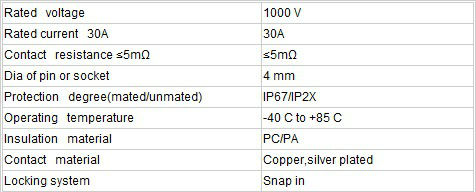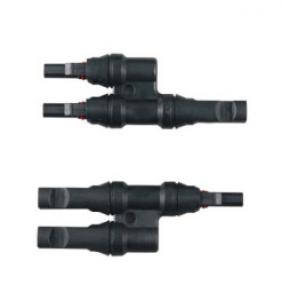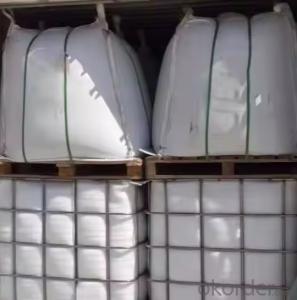Solar cable Connector ST01 S B
- Loading Port:
- China Main Port
- Payment Terms:
- TT OR LC
- Min Order Qty:
- -
- Supply Capability:
- 10000 set/month
OKorder Service Pledge
Quality Product, Order Online Tracking, Timely Delivery
OKorder Financial Service
Credit Rating, Credit Services, Credit Purchasing
You Might Also Like

- Q:Can solar energy systems be used in powering disaster relief centers or emergency shelters?
- Yes, solar energy systems can be used effectively in powering disaster relief centers or emergency shelters. Solar panels can harness the sun's energy and convert it into electricity, providing a reliable and sustainable power source in areas where traditional power infrastructure may be damaged or unavailable. Solar energy systems can help ensure continuous power supply for lighting, charging communication devices, operating medical equipment, and other essential functions in disaster relief centers or emergency shelters. They offer a practical and eco-friendly solution for providing electricity during critical times.
- Q:Are there any fire risks associated with solar energy systems?
- Yes, there are fire risks associated with solar energy systems, although they are relatively low. The most common fire risk is with faulty electrical components or improper installation, which can lead to short circuits or overheating. However, these risks can be minimized through proper installation, regular maintenance, and adherence to safety codes and regulations.
- Q:Can solar energy systems be used in areas with high temperatures?
- Yes, solar energy systems can be used in areas with high temperatures. In fact, solar panels are designed to withstand and operate efficiently in a wide range of temperatures. While high temperatures can slightly affect the efficiency of solar panels, modern technologies and materials have been developed to minimize any negative impact. Additionally, solar energy systems can be optimized through proper installation and maintenance to ensure maximum performance in hot climates.
- Q:Can solar energy systems be used for water purification?
- Yes, solar energy systems can be used for water purification. Solar-powered systems, such as solar stills or solar water disinfection units, can harness the sun's energy to purify water by removing contaminants and killing harmful microbes. These systems are particularly useful in remote areas where access to clean water is limited but sunlight is abundant. By utilizing solar energy, these systems offer a sustainable and environmentally friendly solution to water purification.
- Q:What is the cost of installing a solar energy system?
- The cost of installing a solar energy system can vary depending on various factors such as the size of the system, the type and quality of solar panels used, the complexity of the installation, and any additional equipment required. On average, the cost of installing a solar energy system can range from $10,000 to $30,000 or more. However, it is important to note that there are various incentives and tax credits available that can significantly reduce the upfront cost of installation. Additionally, over the long term, installing a solar energy system can result in significant savings on electricity bills, as the system generates clean and renewable energy, reducing reliance on traditional energy sources. It is advisable to consult with a professional solar installer to get an accurate estimate based on your specific requirements and location.
- Q:Can solar energy systems be used for powering electric vehicle solar charging stations at highways?
- Yes, solar energy systems can certainly be used to power electric vehicle (EV) solar charging stations at highways. Solar power is a clean and renewable energy source that can be harnessed through photovoltaic (PV) panels. These panels convert sunlight into electricity, which can then be used to charge EVs. Highways are often exposed to ample sunlight, making them ideal locations for solar charging stations. By utilizing solar energy, these charging stations can operate off-grid, reducing dependence on traditional power sources and minimizing environmental impact. Additionally, solar charging stations can be installed along highways without the need for extensive infrastructure development, as they do not require connection to the electrical grid. Solar-powered EV charging stations offer several benefits. First, they provide a sustainable and carbon-free method of charging EVs, helping to reduce greenhouse gas emissions and combat climate change. Second, they contribute to the development of a decentralized energy system, as they are independent of the electrical grid. This decentralization can enhance energy security and resilience, as well as increase the overall reliability of the charging infrastructure. Moreover, solar charging stations can have economic advantages. As the cost of solar panels continues to decrease and the efficiency of PV technology improves, the installation and maintenance costs of solar charging stations are becoming increasingly competitive with traditional charging infrastructure. Furthermore, solar charging stations can generate additional revenue through excess energy production, as any surplus electricity can be sold back to the grid. In conclusion, solar energy systems are a viable and sustainable solution for powering electric vehicle solar charging stations at highways. They offer environmental benefits, promote energy independence, and can contribute to cost savings. As the adoption of EVs continues to grow, the integration of solar energy into the charging infrastructure will play a crucial role in creating a greener and more sustainable transportation system.
- Q:Can solar energy systems be used in powering mining operations?
- Yes, solar energy systems can be used to power mining operations. Solar panels can be installed near mining sites to capture sunlight and convert it into electricity, which can then be used to power various equipment and machinery required for mining operations. This helps reduce dependence on fossil fuels, lowers operational costs, and minimizes environmental impact associated with traditional power sources.
- Q:Are there any financing options available for purchasing solar energy systems?
- Yes, there are several financing options available for purchasing solar energy systems. One common option is to take out a solar loan, which allows homeowners to borrow money specifically for the purchase and installation of a solar energy system. These loans typically have low interest rates and flexible repayment terms, making them an affordable option for many homeowners. Another financing option is to lease a solar energy system. With a solar lease, homeowners can have a solar energy system installed on their property without having to pay for the equipment upfront. Instead, they make monthly lease payments to the solar company in exchange for using the solar energy generated by the system. This option is especially popular for homeowners who don't want the responsibility of maintaining and repairing the equipment themselves. Additionally, some states and municipalities offer solar incentives and tax credits to help offset the cost of installing solar energy systems. These incentives can include grants, rebates, or tax credits that reduce the upfront costs of purchasing and installing solar panels. It's important to research what incentives are available in your area, as they can significantly reduce the overall cost of going solar. Finally, some solar companies offer power purchase agreements (PPAs), where homeowners pay for the solar electricity they use at a predetermined rate. This option allows homeowners to benefit from solar energy without any upfront costs, as the solar company owns and maintains the equipment. While PPAs can be a good option for some homeowners, it's crucial to carefully review the terms and conditions before entering into a contract. Overall, there are various financing options available for purchasing solar energy systems, making it more accessible and affordable for homeowners to transition to clean and renewable energy sources.
- Q:Can solar energy systems be used to power large industrial facilities?
- Yes, solar energy systems can be used to power large industrial facilities. Advances in solar technology have made it possible to generate electricity on a large scale through solar panels or concentrated solar power systems. These systems can provide a significant amount of power required by industrial facilities, reducing their reliance on traditional energy sources and minimizing their carbon footprint.
- Q:Is solar energy reliable?
- Yes, solar energy is reliable. Solar panels can generate electricity as long as they are exposed to sunlight, which is abundant and available in most regions. Additionally, solar energy systems have a lifespan of 25-30 years, and with proper maintenance, they can consistently produce power during that period. The advancements in solar technology have also made it more efficient and cost-effective, making it a reliable source of renewable energy for both residential and commercial applications.
1. Manufacturer Overview |
|
|---|---|
| Location | |
| Year Established | |
| Annual Output Value | |
| Main Markets | |
| Company Certifications | |
2. Manufacturer Certificates |
|
|---|---|
| a) Certification Name | |
| Range | |
| Reference | |
| Validity Period | |
3. Manufacturer Capability |
|
|---|---|
| a)Trade Capacity | |
| Nearest Port | |
| Export Percentage | |
| No.of Employees in Trade Department | |
| Language Spoken: | |
| b)Factory Information | |
| Factory Size: | |
| No. of Production Lines | |
| Contract Manufacturing | |
| Product Price Range | |
Send your message to us
Solar cable Connector ST01 S B
- Loading Port:
- China Main Port
- Payment Terms:
- TT OR LC
- Min Order Qty:
- -
- Supply Capability:
- 10000 set/month
OKorder Service Pledge
Quality Product, Order Online Tracking, Timely Delivery
OKorder Financial Service
Credit Rating, Credit Services, Credit Purchasing
Similar products
New products
Hot products
Related keywords



























